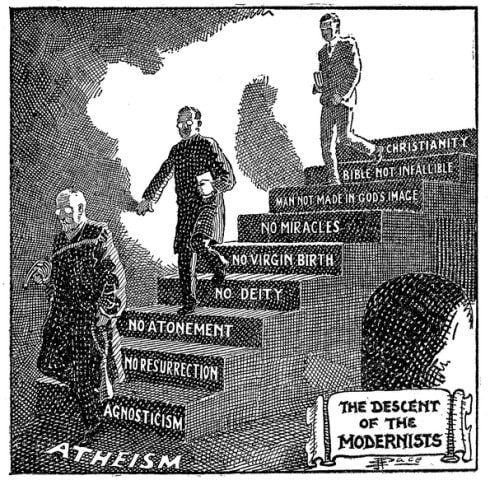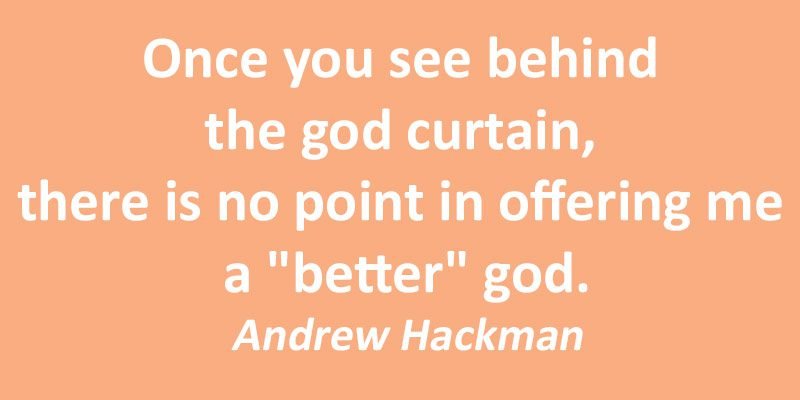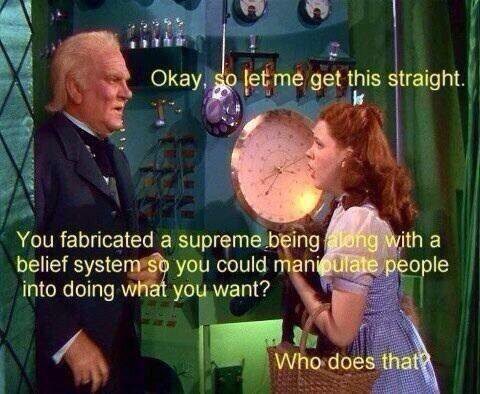
Life is filled with good and bad experiences. Good things happen to bad people, and bad things happen to good people. None of us is exempt from the travails of life. Live long enough and you will face some sort of adversity in your life. Recently, my wife, Polly, spent 18 days in the hospital. This ordeal was the most stressful thing we have faced in forty-one years of marriage. I suspect it will not be the last trial we face before we die.
Christians, of course, are not exempt from bad things. “Life” happens to one and all, even if Jesus is your friend, lover, and physician. Faith does not exempt anyone from facing pain, suffering, and loss. Now, Christians will say that Jesus helps them through the bad times of life, but I found as a pastor that what helped people through adversity was not Jesus, but having a pastor and friends who cared about them. Remove Jesus from the equation, and you will find that atheists, agnostics, and other non-believers have the same need for human love and compassion. One need not believe in Jesus to love and care for others.
Go to the local Evangelical church on Sunday and you will hear songs, testimonies, and sermons extolling the awesomeness of Jesus. Jesus, according Evangelicals, is the bestest e-v-e-r-y-t-h-i-n-g. Yet, come Monday, the Jesus-fix is in the rearview mirror and the realities of life lie ahead. Evangelicals love to say Jesus is their co-pilot or sing Jesus take the Wheel with Carrie Underwood, but truth be told, their day-to-day lives reveal a far different story; that life can be and is hard, and that bad things can and do happen. I pastored Evangelical churches for twenty-five years. As a pastor who deeply cared for his flock, I traveled hand-in-hand with countless congregants as they walked through the “valley of the shadow of death.” (Psalm 23) I witnessed untold suffering, sorrow, and grief. I stood by weeping family members as they disconnected their loved ones from life support. I stood by the bedsides of the dying, knowing that they would soon be no more. I conducted the funerals of children and seniors alike. I helped congregants move to new homes after losing theirs through bankruptcy or foreclosure. Through it all, I promised them that Jesus was a friend that would stick by them no matter what; that he was closer to them than their flesh and blood family. I will admit that, at times, these words seemed superficial and hollow.
Christians who say their life is different from or superior to that of unbelievers are not being honest. Whatever faith may impart to believers, one thing is for certain: shit happens — both to Christians and unbelievers.
When asked to explain WHY bad things happen in their lives, Christians give several different reasons or explanations.
All Things Work Together for Good
The Bible says in Romans 8:28:
And we know that all things work together for good to them that love God, to them who are the called according to his purpose.
As a pastor, I explained Romans 8:28 this way: To those who are called according to God’s purpose and love him, everything turns out for good. Not everything is good, but everything works out for good. God throws good and bad things into the bag of life, and when everything shakes out, the end result is for our good. God loves us, has a purpose and plan for our lives, and only wants what is best for us. Or so I thought at the time.
God has a Purpose and Plan for Our Lives
Jeremiah 29:11 says, For I know the thoughts that I think toward you, saith the Lord, thoughts of peace, and not of evil, to give you an expected end. In Hebrews 13:5, God promises to never leave or forsake Christians. As a teen, I was encouraged to choose a “life” verse from the Bible; a verse that would be the governing principle of my life. I chose Proverbs 3:5-6:
Trust in the LORD with all thine heart; and lean not unto thine own understanding. In all thy ways acknowledge him, and he shall direct thy paths.
The aforementioned verses and others say to Christians that God has a perfect plan for their lives; that everything that happens to them is according to his divine purpose for them. While it may seem that God is either AWOL or not working in Christians’ best interests, they are reminded by preachers and teachers that God is behind the scenes making sure everything works out as planned. God knows everything, sees everything, and is present everywhere, so Christians can rest easy — the triune God is on duty 24/7.
Above all, Christians are told to not question God’s plan. The Apostle Paul made this clear in his treatise about divine election. Romans 9:20 says:
Nay but, O man, who art thou that repliest against God? Shall the thing formed say to him that formed it, Why hast thou made me thus?
Simply put, God can do whatever he wants, end of story. God says his plan for you, dear Christian, is perfect. How dare you question his sanity. Just keep on believing until reason and common sense depart and faith takes their place. Once faith rules your life, well anything is possible. Is this not exactly what the Bible says in Mark 10:27, with God all things are possible, and John 15:5, without me ye can do nothing?
God’s Ways are not Our Ways
The Bible says in Isaiah 55:8-9:
For my thoughts are not your thoughts, neither are your ways my ways, saith the Lord. For as the heavens are higher than the earth, so are my ways higher than your ways, and my thoughts than your thoughts.
When God’s purpose and plan seem to be out of sorts with expectations and reason, Christians are reminded by their pastors that God’s thoughts are not their thoughts, and his ways are not their ways; that his ways and thoughts are higher than theirs. In other words, when everything in your life is telling you that God doesn’t know what the Heaven he is doing, just remember God doesn’t think or work as humans do. Come on, dude, he’s God, the ULTIMATE party planner.
Again, when Christians have doubts about what God is up to, they are encouraged to faith-it until they make-it. Since God is perfect in all his ways, he can never be at fault if your life turns to shit or you find yourself sitting in a pile of ashes scraping pus from sores as Job did.
What I am Facing is a Test From God
According to Christian preachers of every denomination, sometimes God brings adversity into the lives of believers because he is testing them. Read the book of Job. God turned Satan loose on Job, a righteous man, to see what kind of faith he had; whether he would break under pain, suffering, and loss. Thus, when Christians face Job-like adversity, the first question they should ask themselves is this: is God testing me?
What I am Facing is a Trial Meant to Make Me Stronger
Isaiah 41:10 says:
Fear thou not; for I am with thee: be not dismayed; for I am thy God: I will strengthen thee; yea, I will help thee; yea, I will uphold thee with the right hand of my righteousness
James 1:2-4 says:
My brethren, count it all joy when ye fall into divers temptations; Knowing this, that the trying of your faith worketh patience. But let patience have her perfect work, that ye may be perfect and entire, wanting nothing.
According to the Bible, God brings trials into the lives of Christians to make them spiritually stronger; to increase their faith; to toughen up their metaphorical hide. So, when bad things happen, Christians should ask themselves, is this a test or is this a trial God has brought in my life to make me stronger?
What I am Facing is Chastisement from God
The Bible says in Hebrews 12:6-8:
For whom the Lord loveth he chasteneth, and scourgeth every son whom he receiveth. If ye endure chastening, God dealeth with you as with sons; for what son is he whom the father chasteneth not? But if ye be without chastisement, whereof all are partakers, then are ye bastards, and not sons.
Sometimes, God uses bad things to chastise (punish) Christians for sin in their lives. In fact, a life without punishment is a sure sign that someone is NOT a Christian. God, the Father, punishes and corrects those whom he loves. Just as our earthly fathers beat us when we disobeyed, so does our Heavenly Father.
Proverbs 3:12 says: For whom the Lord loveth he correcteth; even as a father the son in whom he delighteth.
So, when bad things happen, Christians should ask themselves, is this a test, a trial God has brought in my life to make me stronger, or is God chastising me? In other words, which cup is the coin under?
These six statements pretty well cover every explanation Christians use to explain the bad things in their lives. I have yet to hear a Christian say, when asked about the adversity he or she is facing, Hell if I know, shit happens! God’s honor and name must be defended at all costs lest people believe that he is a psychopath who finds pleasure in inflicting pain, suffering, and abuse on fallible, frail humans. Just remember, God created everything and is the sovereign Lord over all, but when things turn to shit, he’s not to blame. Don’t try this at home!
Now, when bad things happen to unbelievers, the explanation is far different. God is trying to get our attention. Bad things happening in our lives are warning signs from God. Warning! Judgment and Hell await unless you, without delay, repent of your sins and put your faith and trust in Jesus Christ. I was somewhat surprised that a Christian zealot didn’t email me and say that Polly’s latest hospitalization was God warning me (us) that I was on a dangerous path that leads to hellfire and damnation. Of course, such a warning would have the opposite effect on me. Giving the love of my life bladder cancer and ulcerative colitis so I will love you? Not going to happen asshole!
About Bruce Gerencser
Bruce Gerencser, 62, lives in rural Northwest Ohio with his wife of 41 years. He and his wife have six grown children and twelve grandchildren. Bruce pastored Evangelical churches for twenty-five years in Ohio, Texas, and Michigan. Bruce left the ministry in 2005, and in 2008 he left Christianity. Bruce is now a humanist and an atheist. For more information about Bruce, please read the About page.
Are you on Social Media? Follow Bruce on Facebook and Twitter.
Thank you for reading this post. Please share your thoughts in the comment section. If you are a first-time commenter, please read the commenting policy before wowing readers with your words. All first-time comments are moderated. If you would like to contact Bruce directly, please use the contact form to do so.
Donations are always appreciated. Donations on a monthly basis can be made through Patreon. One-time donations can be made through PayPal.
Share This Post On Social Media:









 Jesus is not a religion, Jesus is in every religion across the globe. If you don’t believe that Jesus existed, then he would be fiction. If he’s fiction, and you want to remove his name from everything then you need to remove every fiction name that there is across the country. That means we couldn’t say Superman welcomes you to town.
Jesus is not a religion, Jesus is in every religion across the globe. If you don’t believe that Jesus existed, then he would be fiction. If he’s fiction, and you want to remove his name from everything then you need to remove every fiction name that there is across the country. That means we couldn’t say Superman welcomes you to town.
